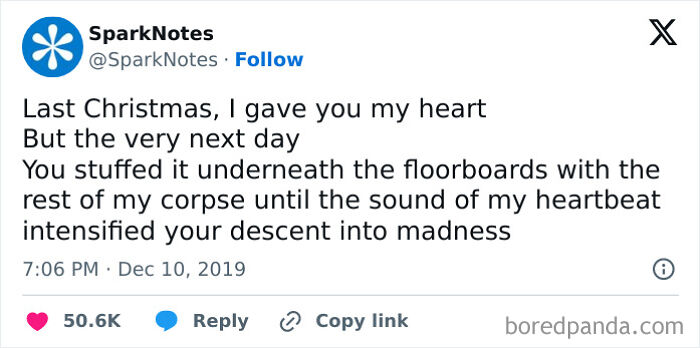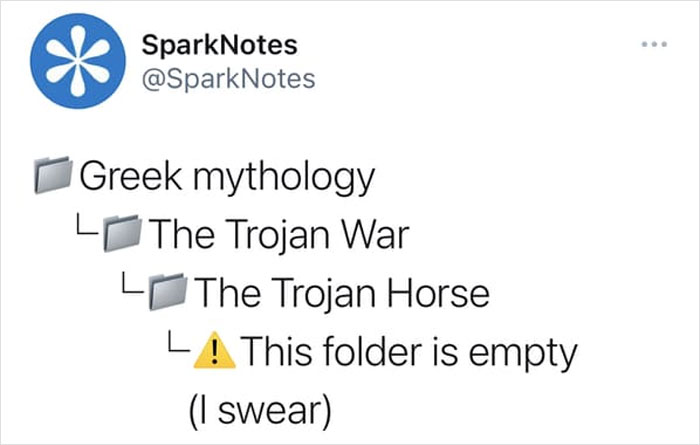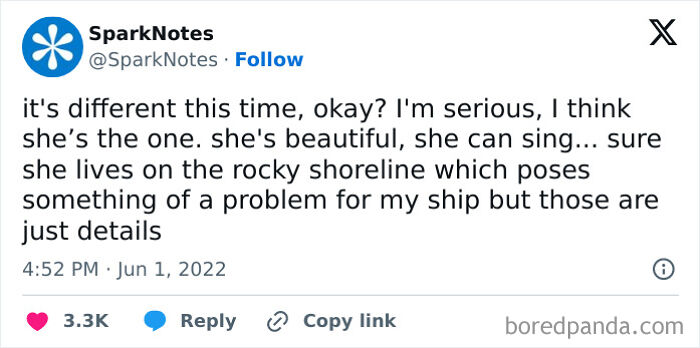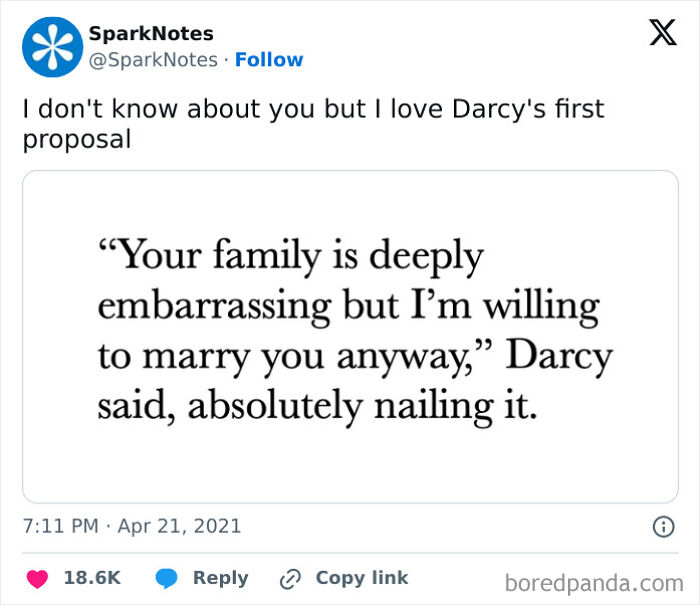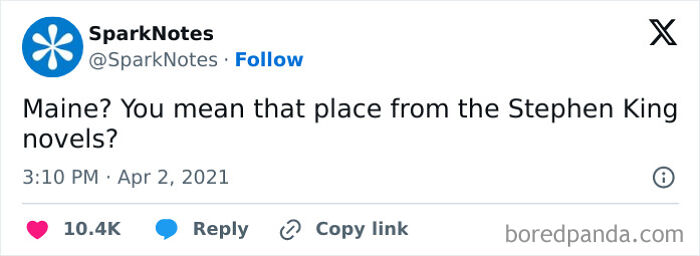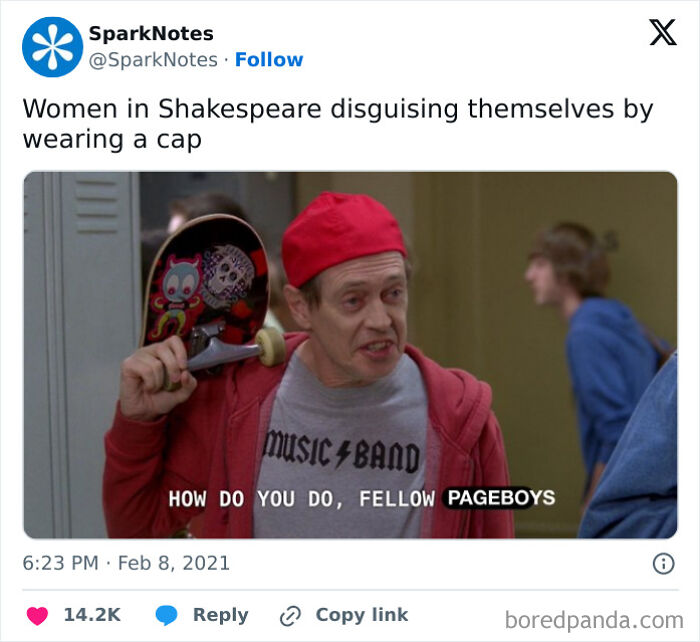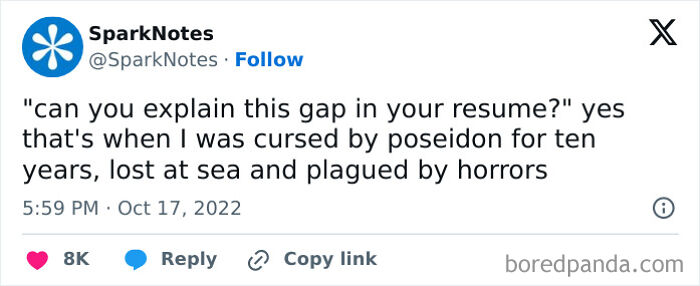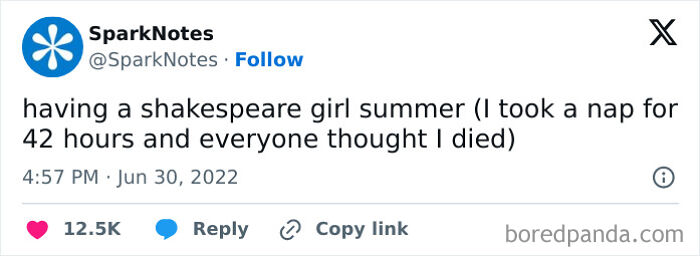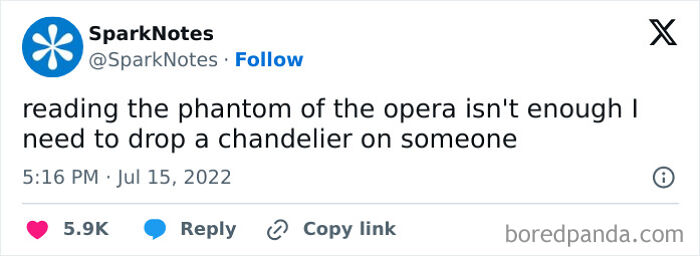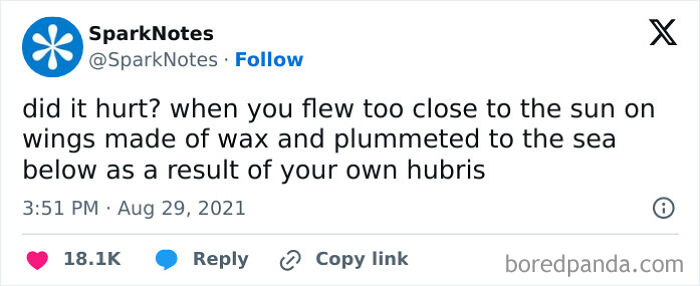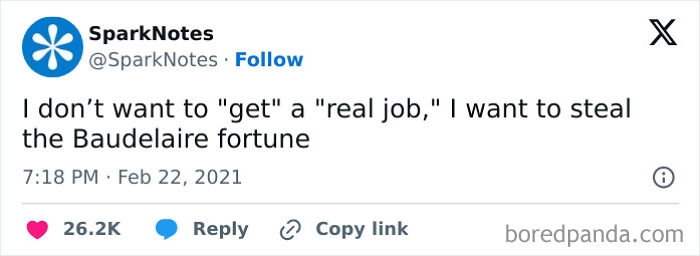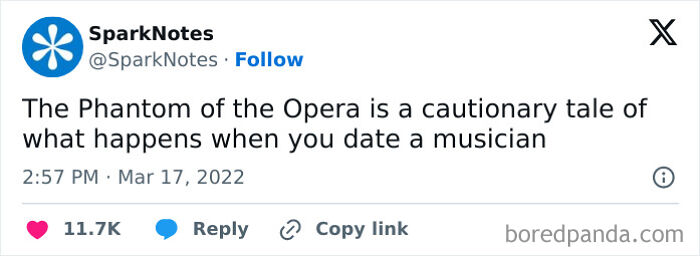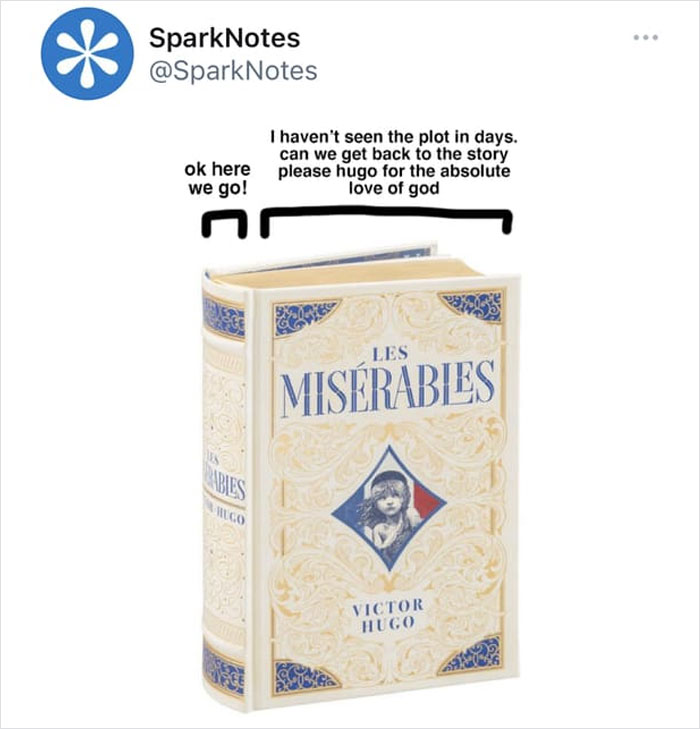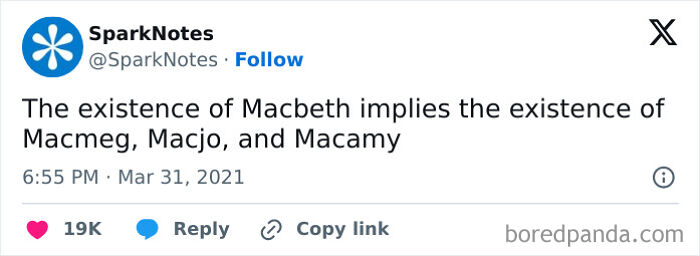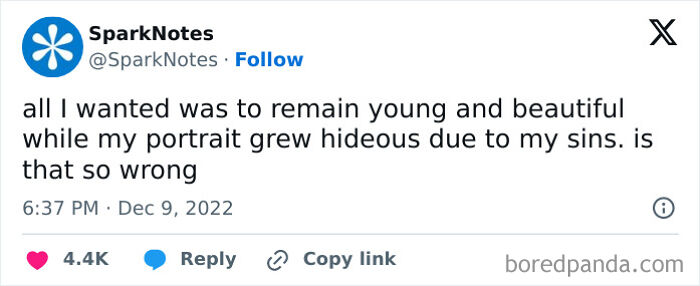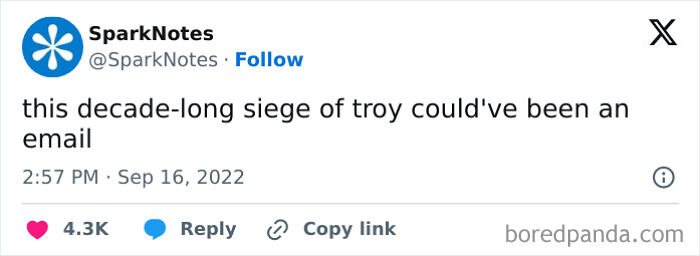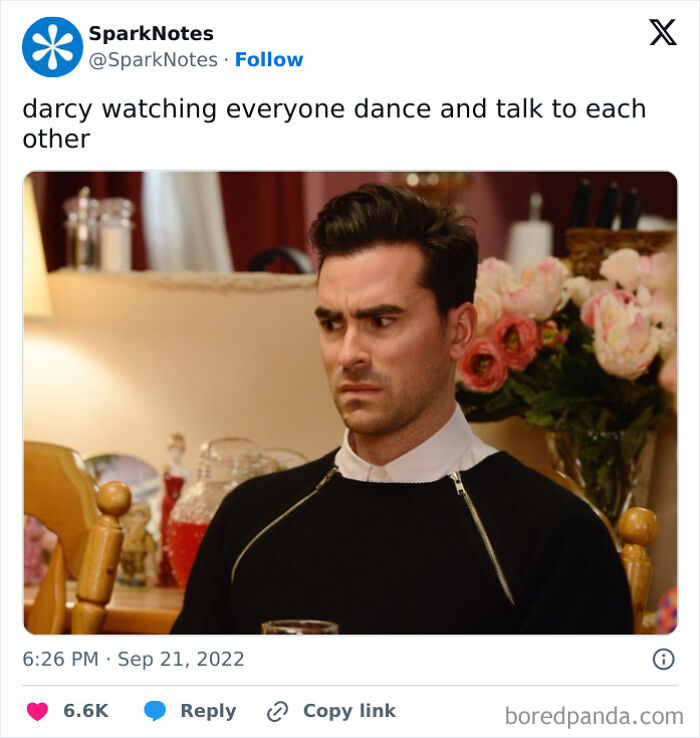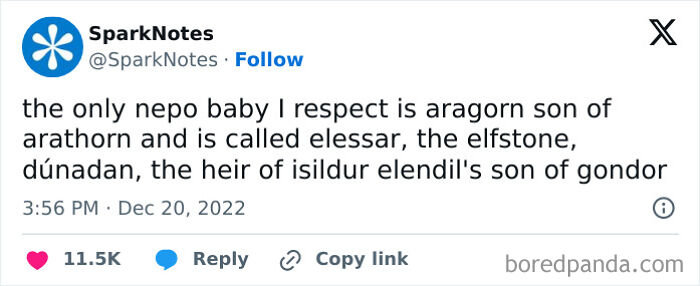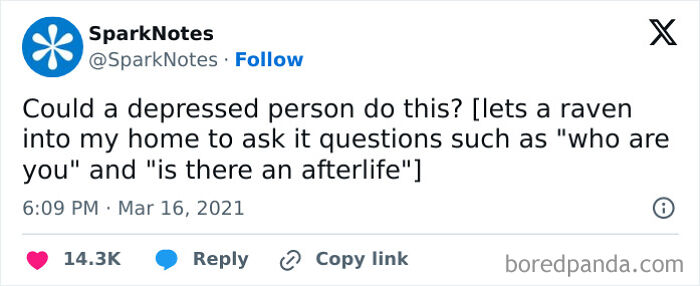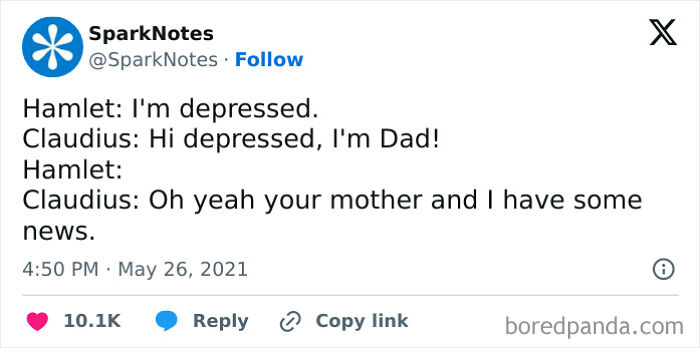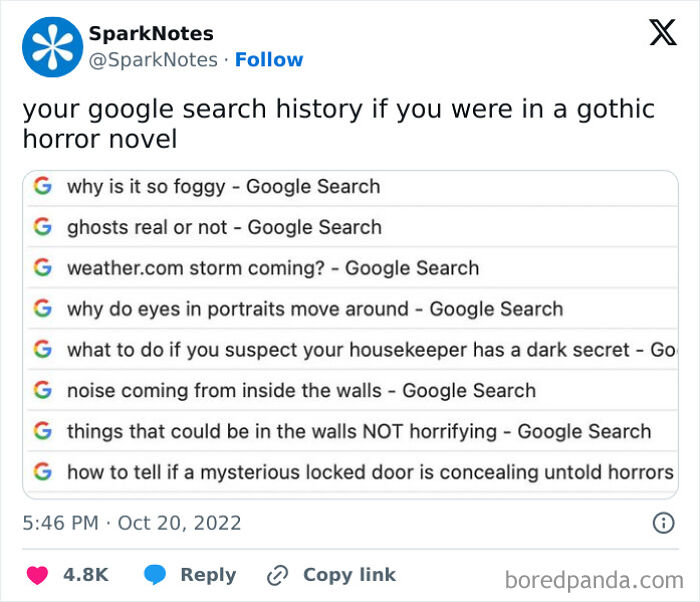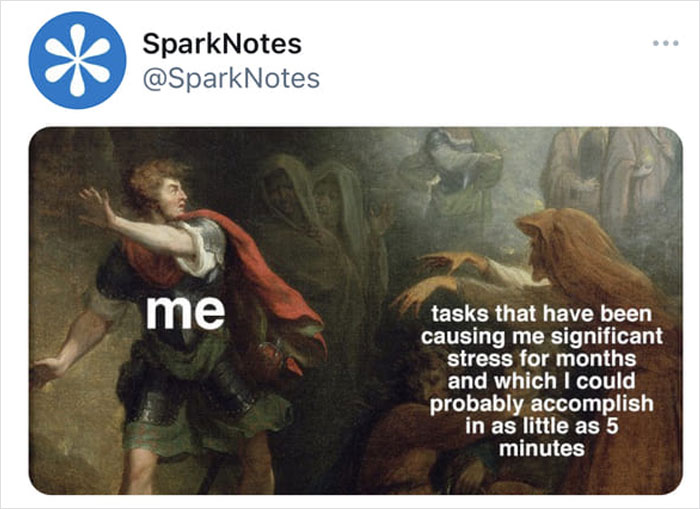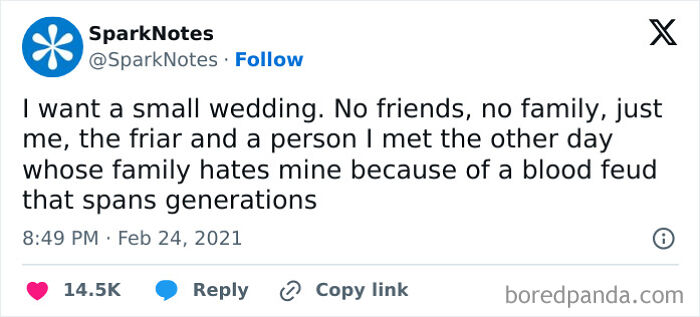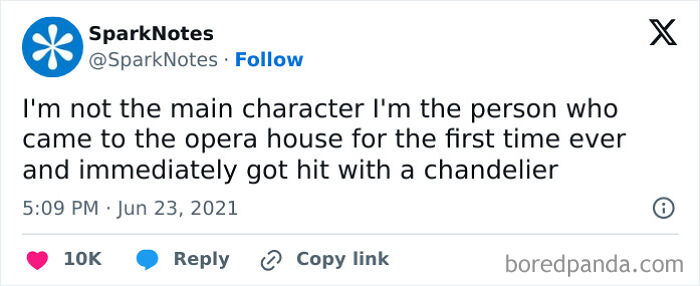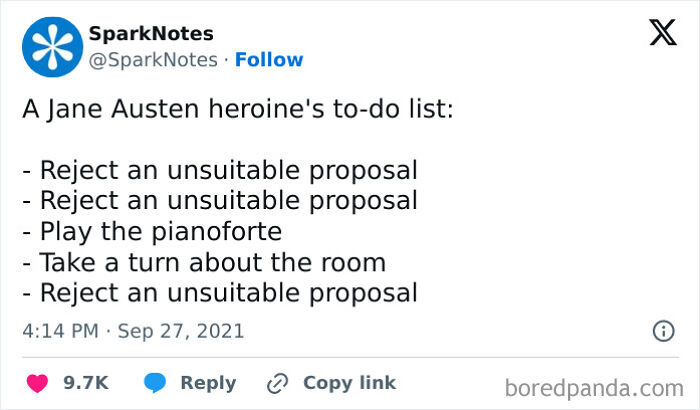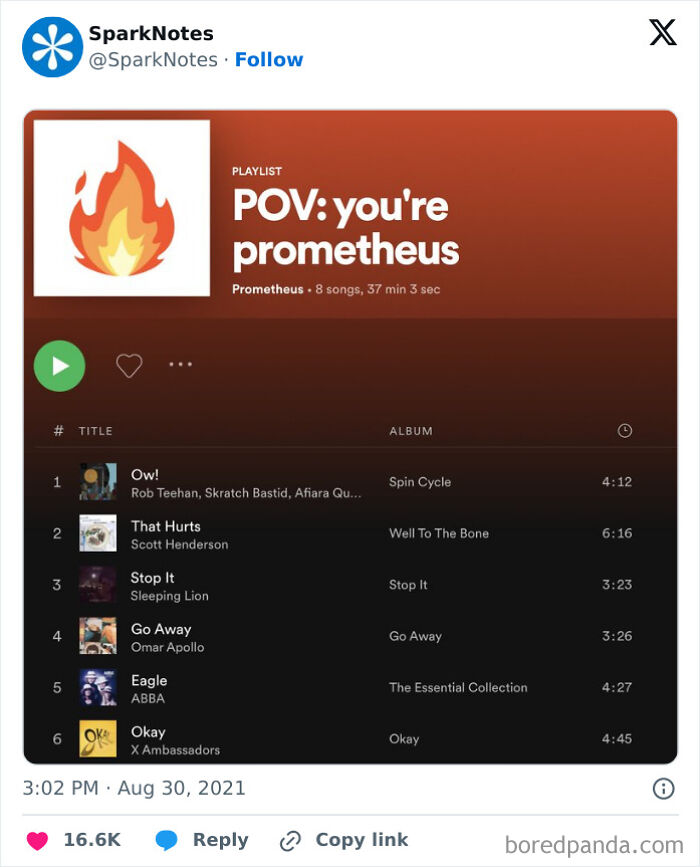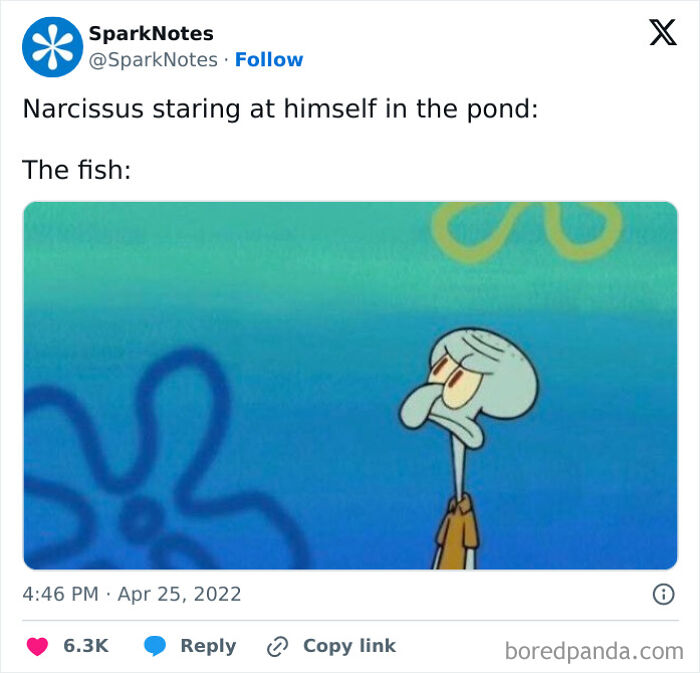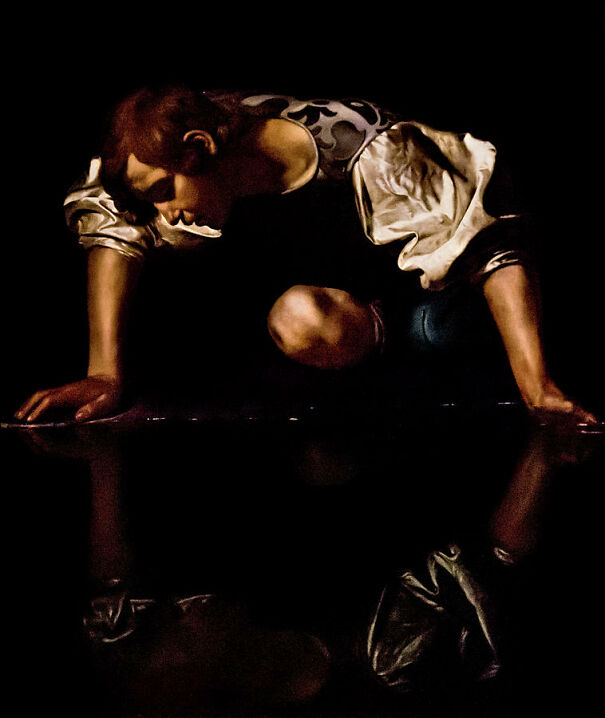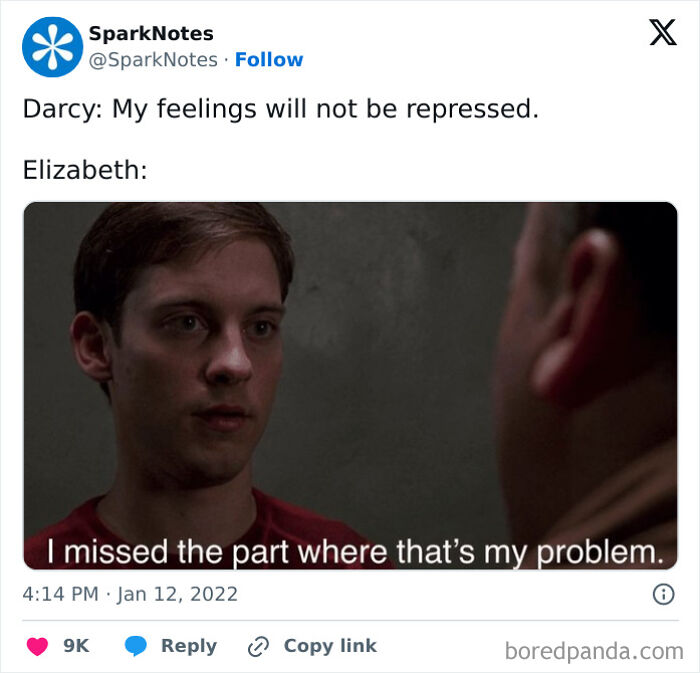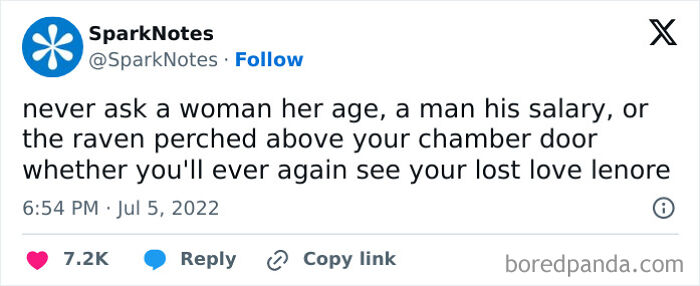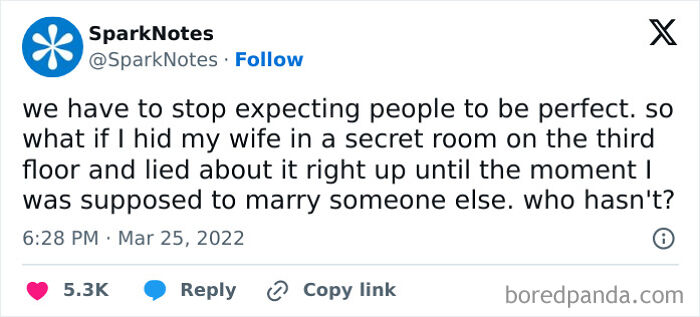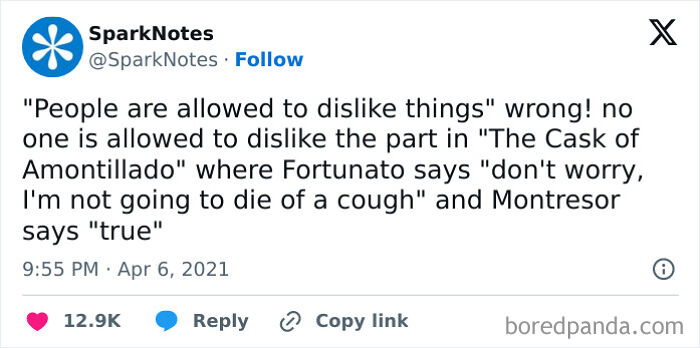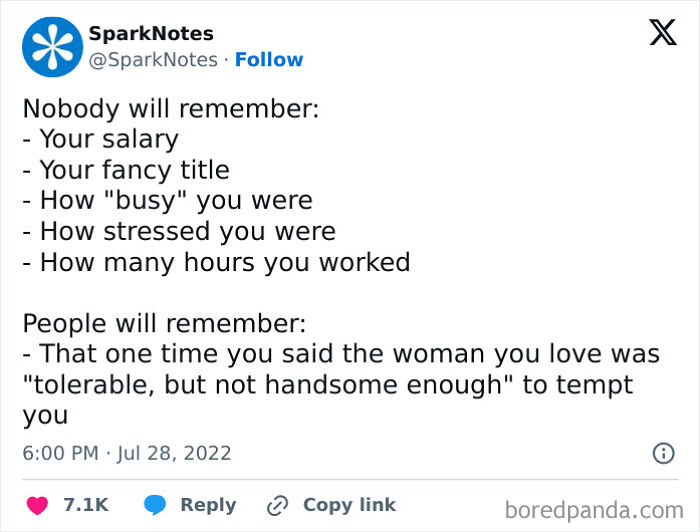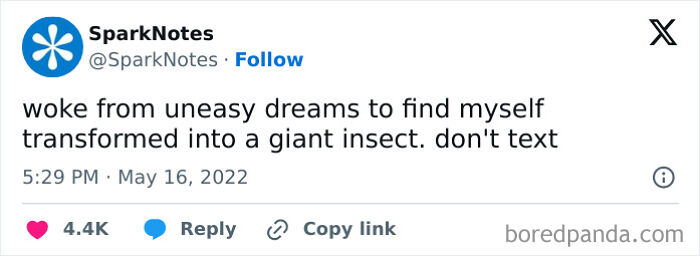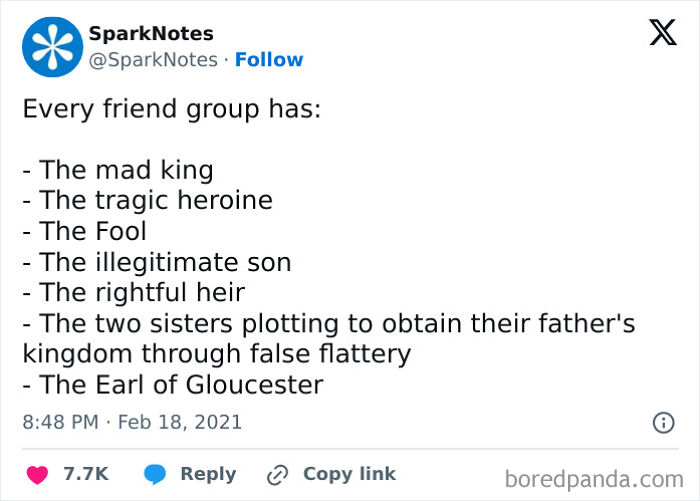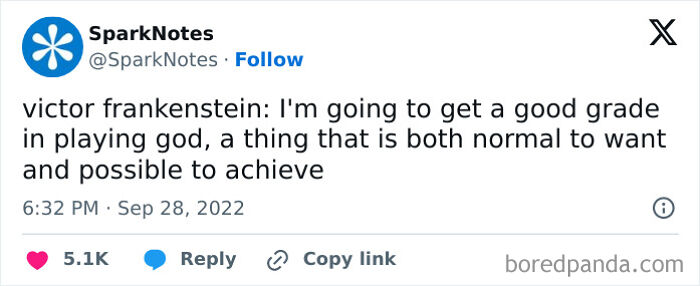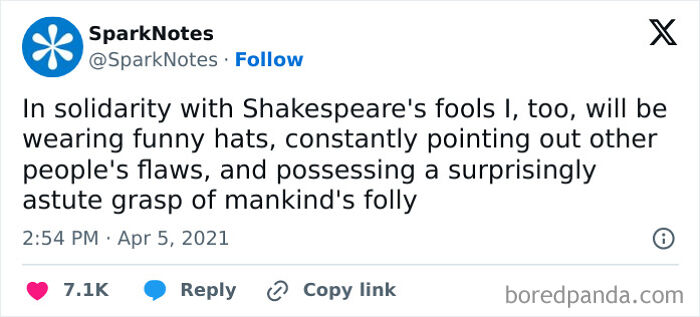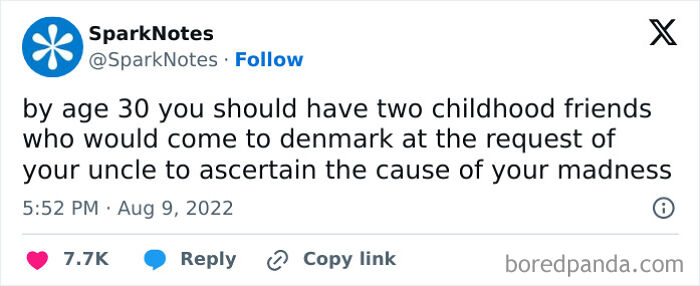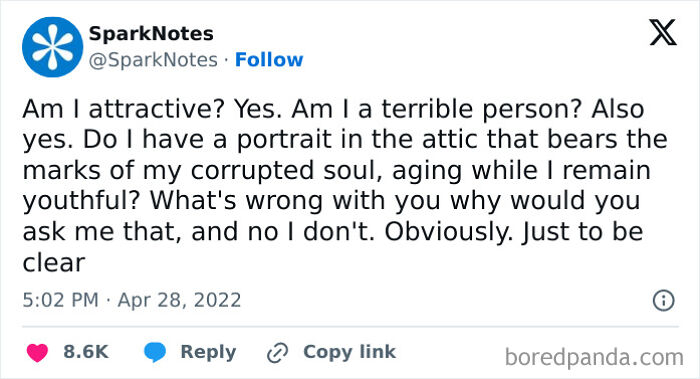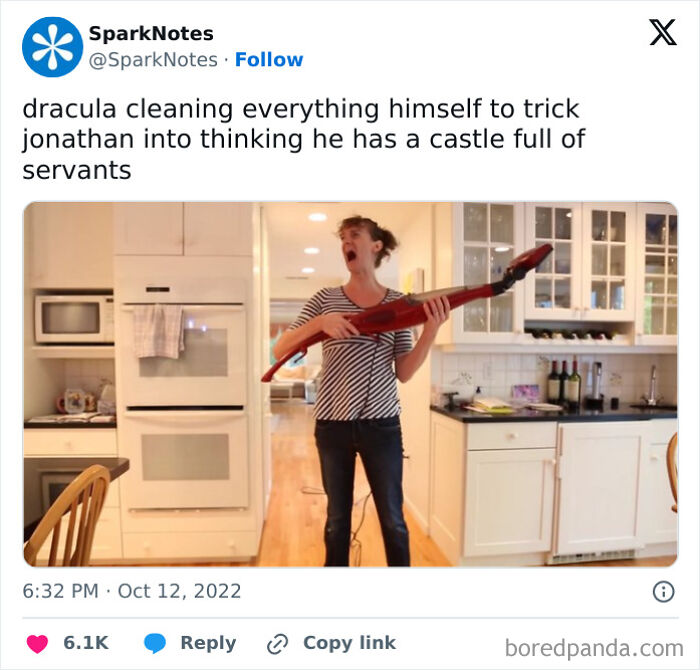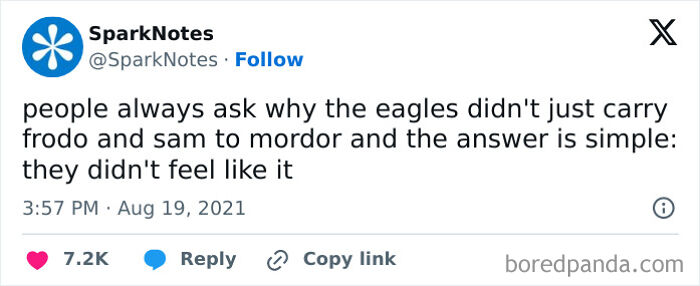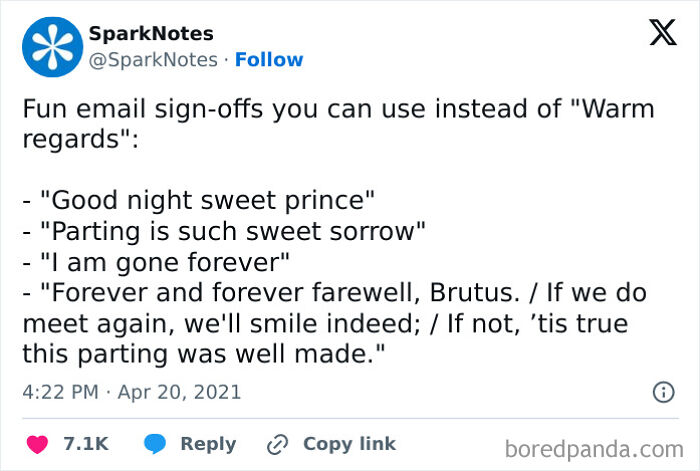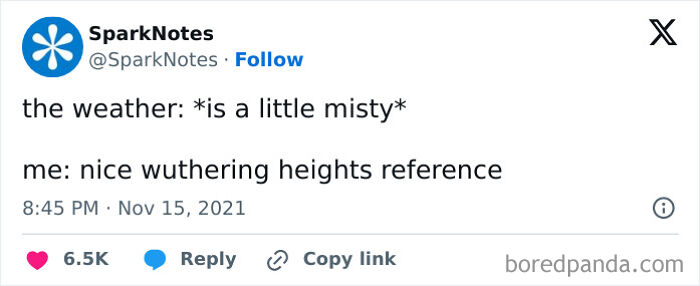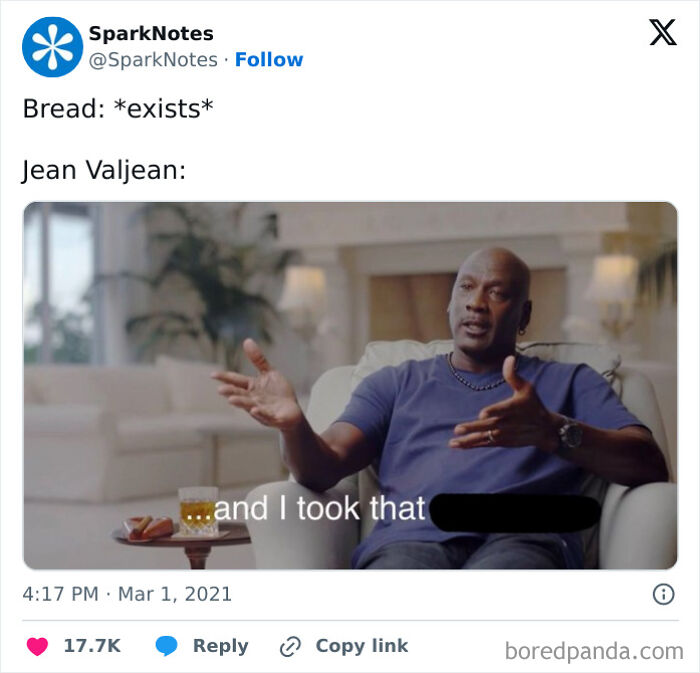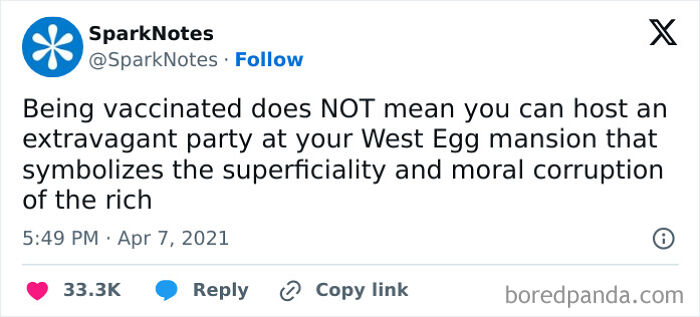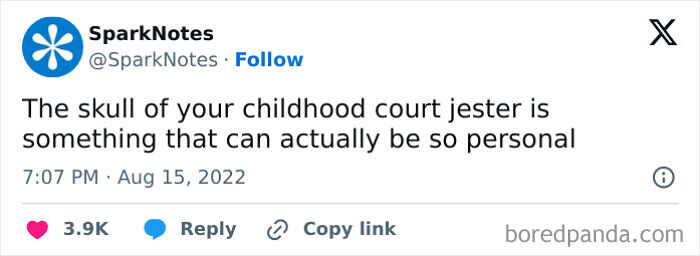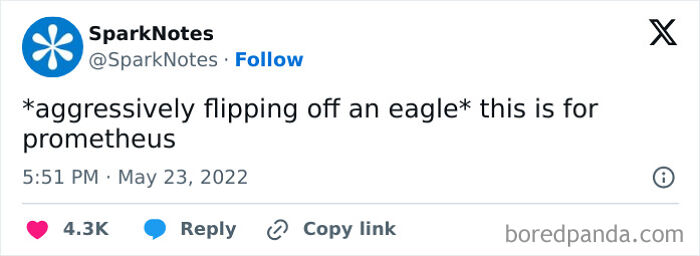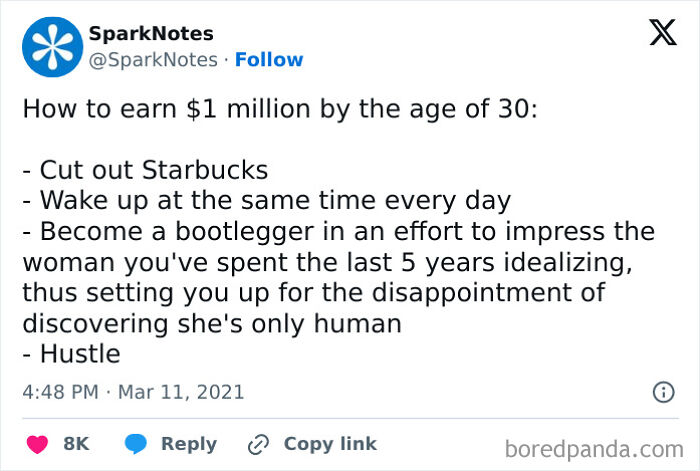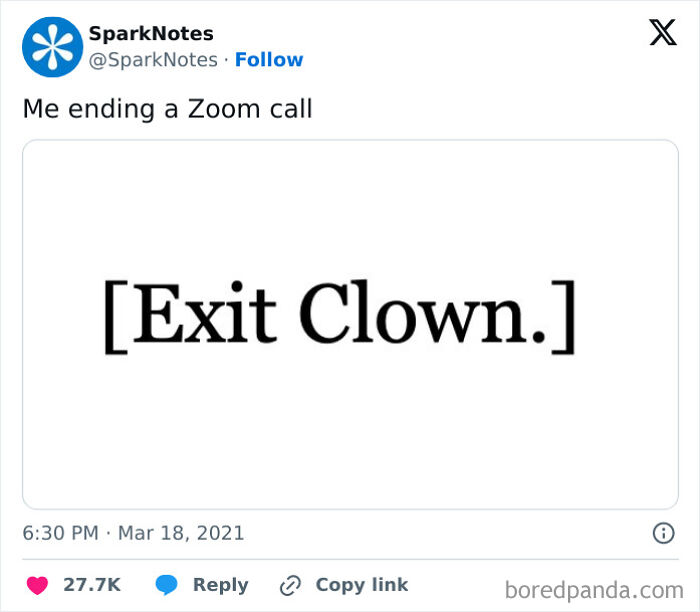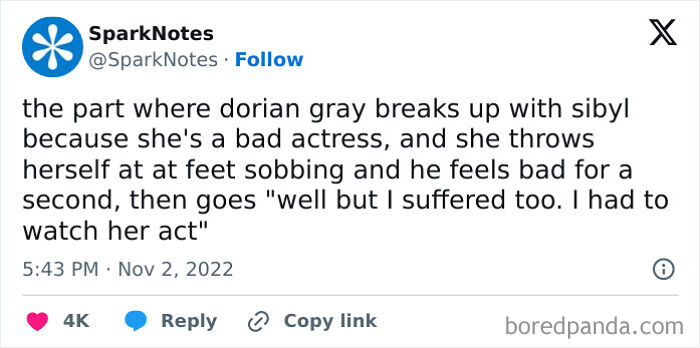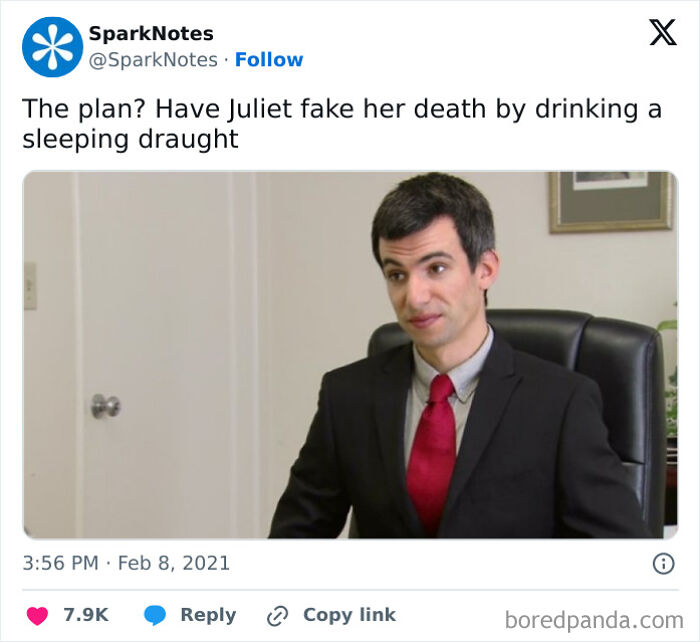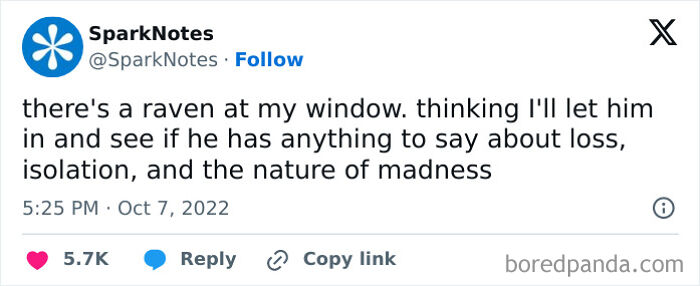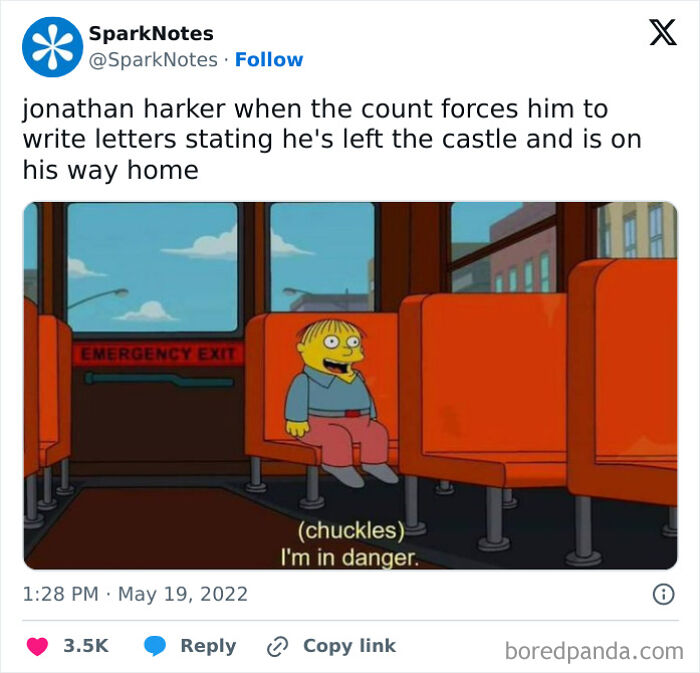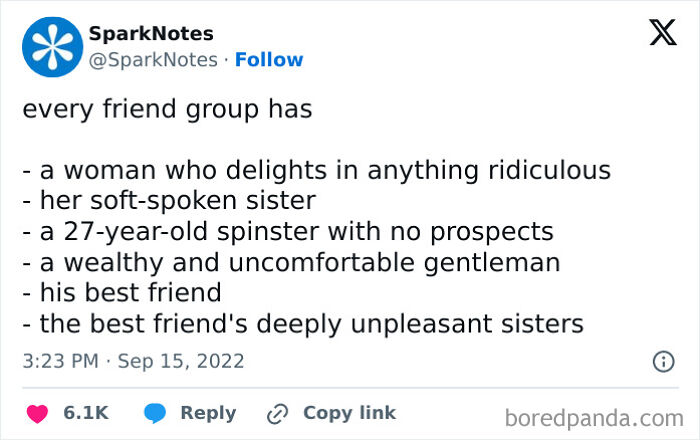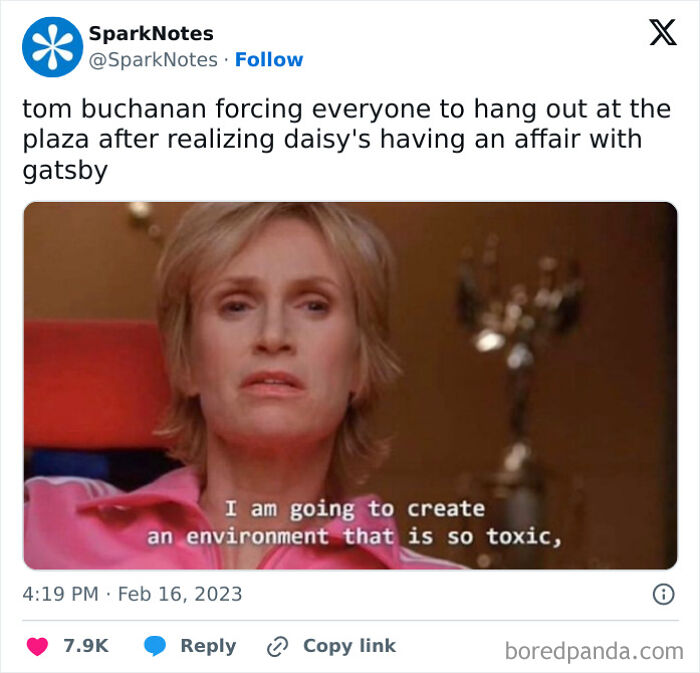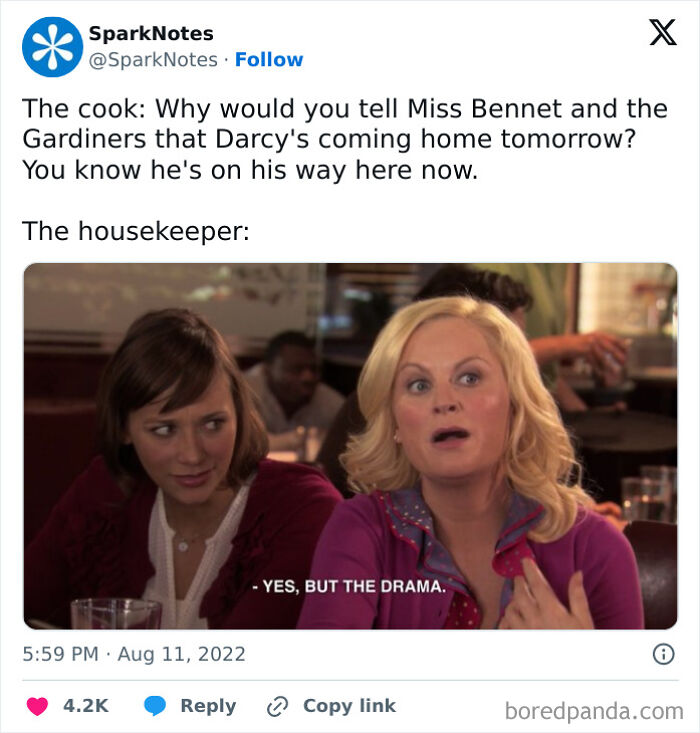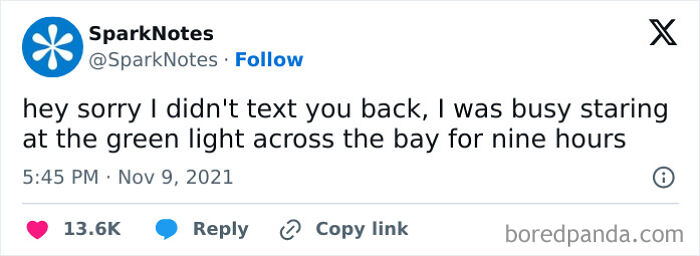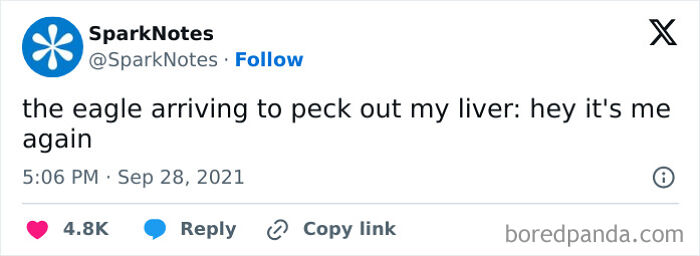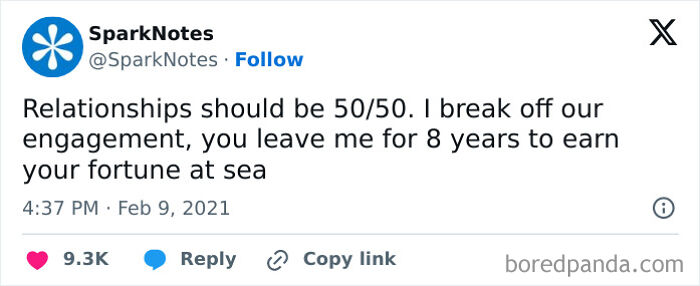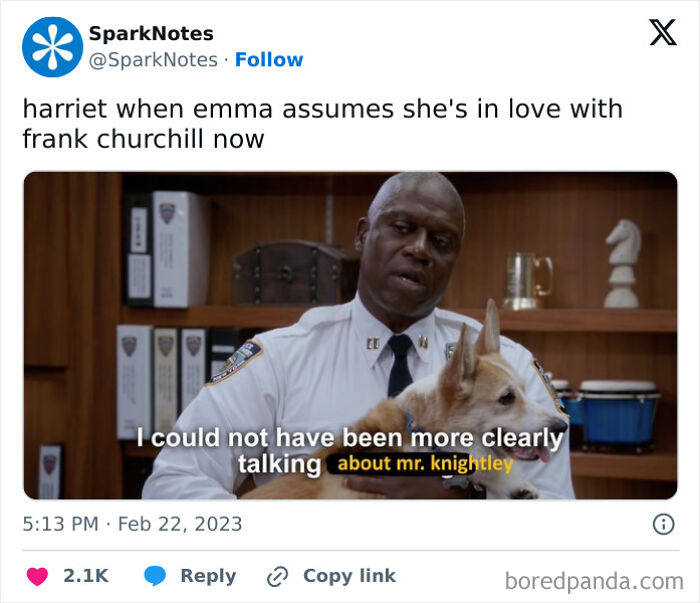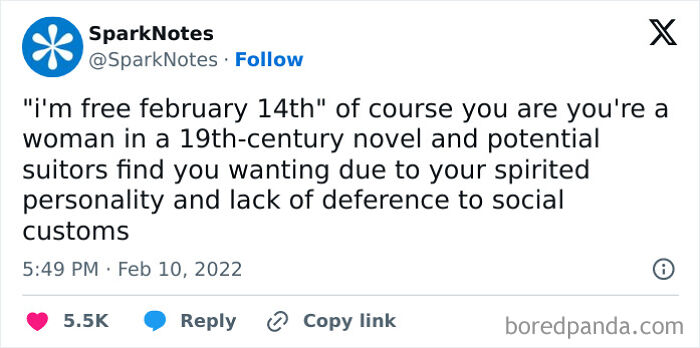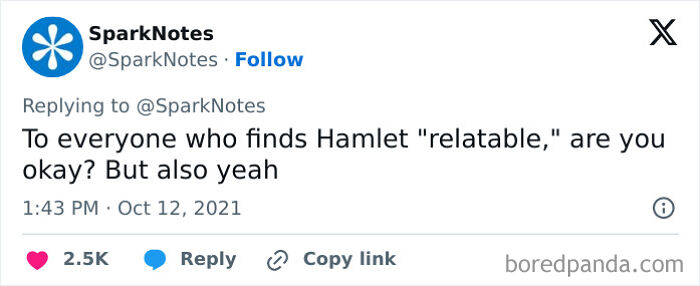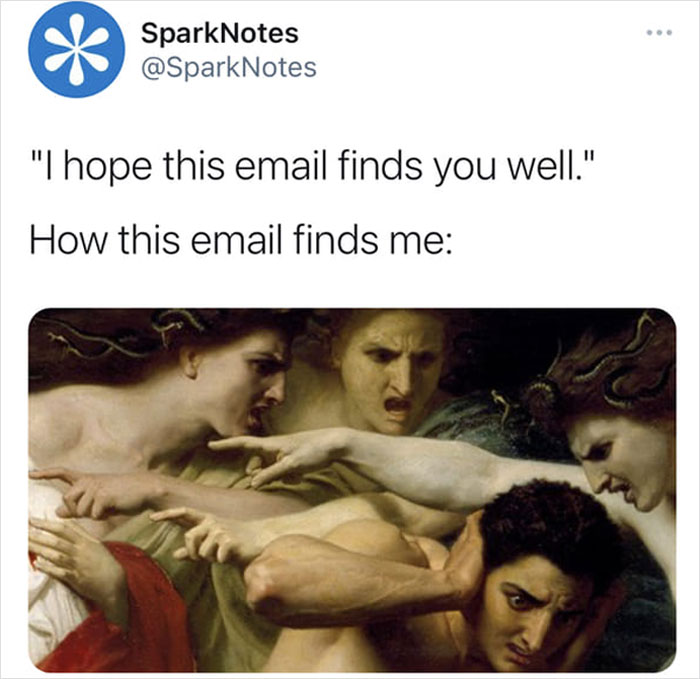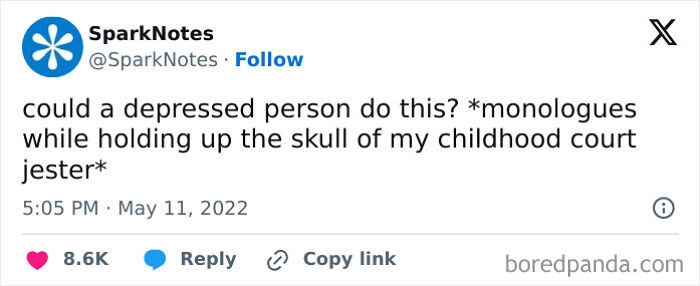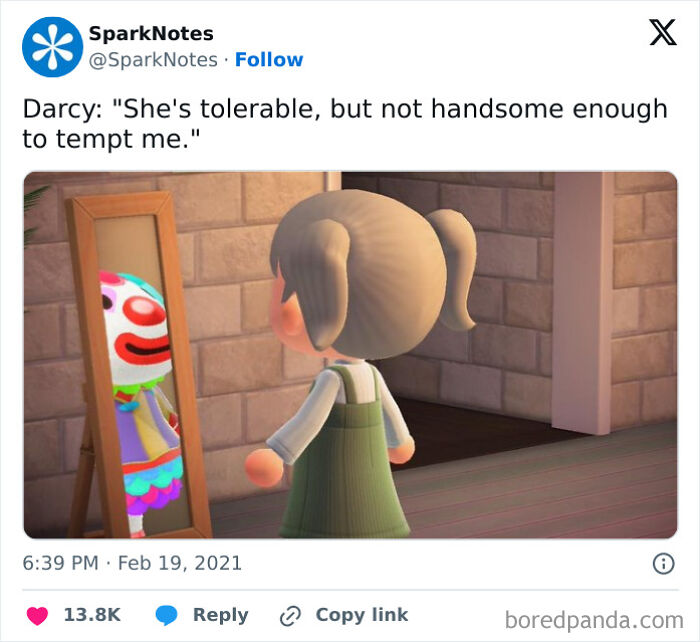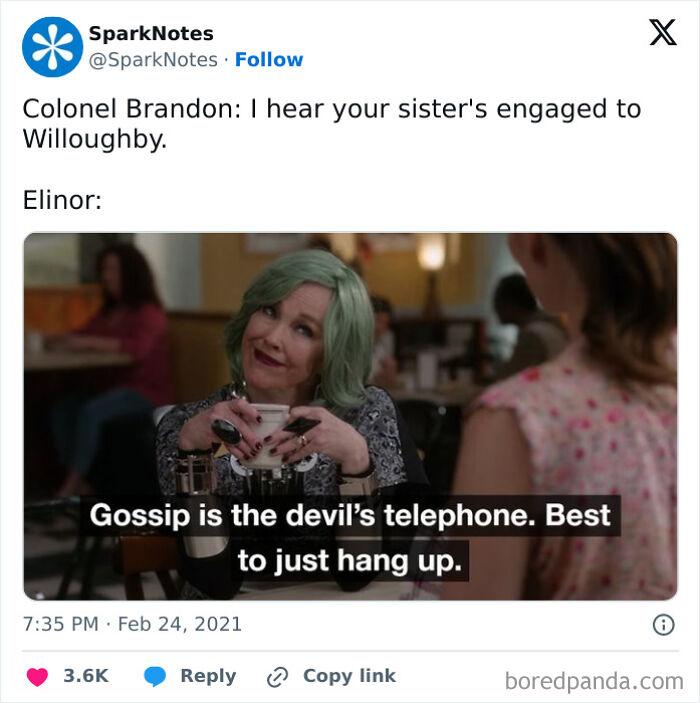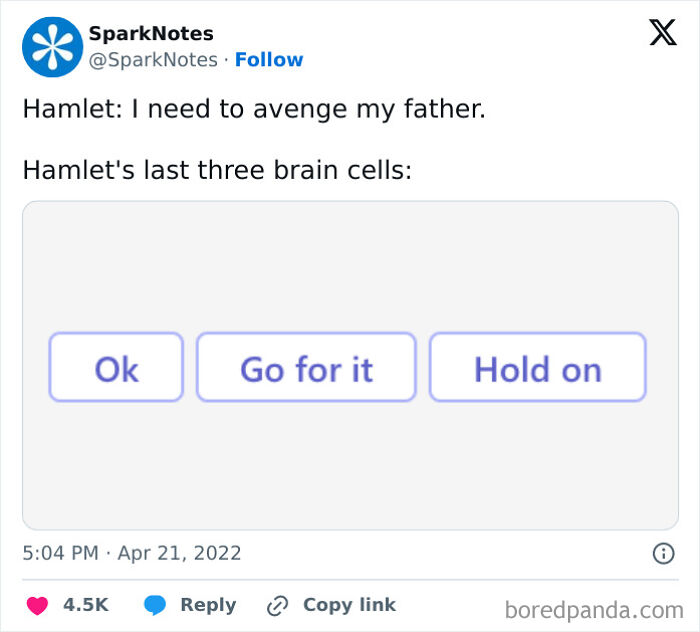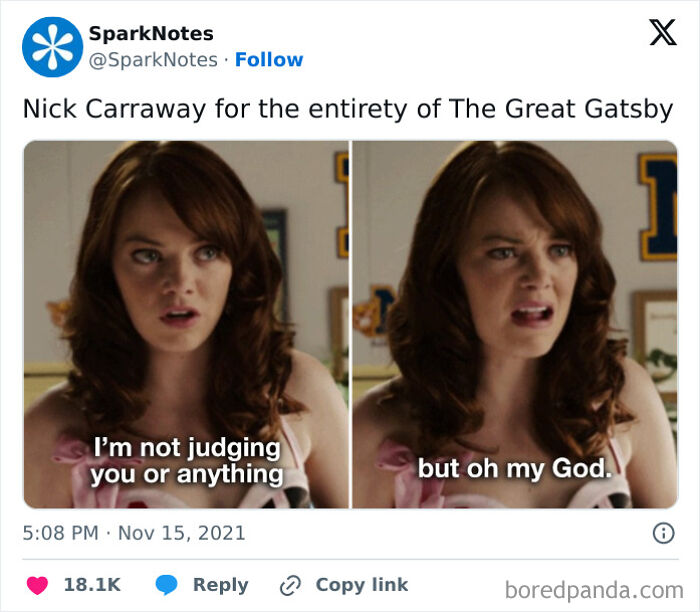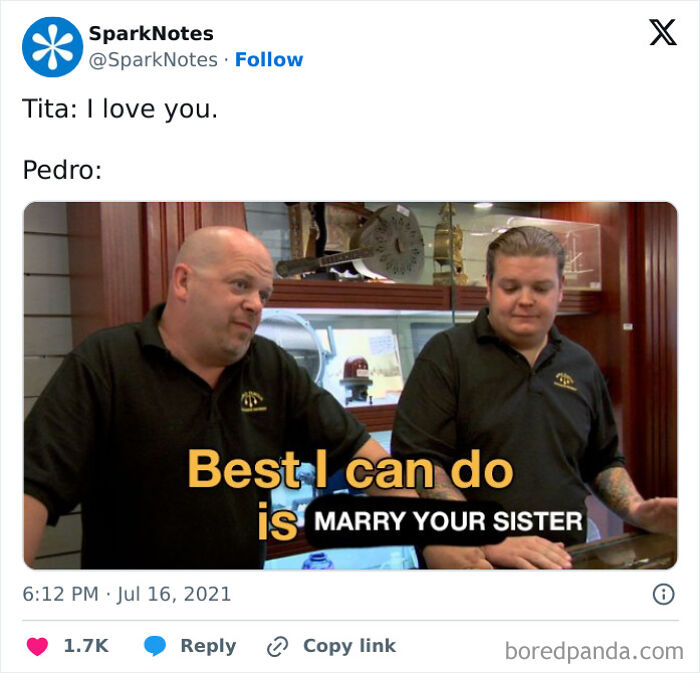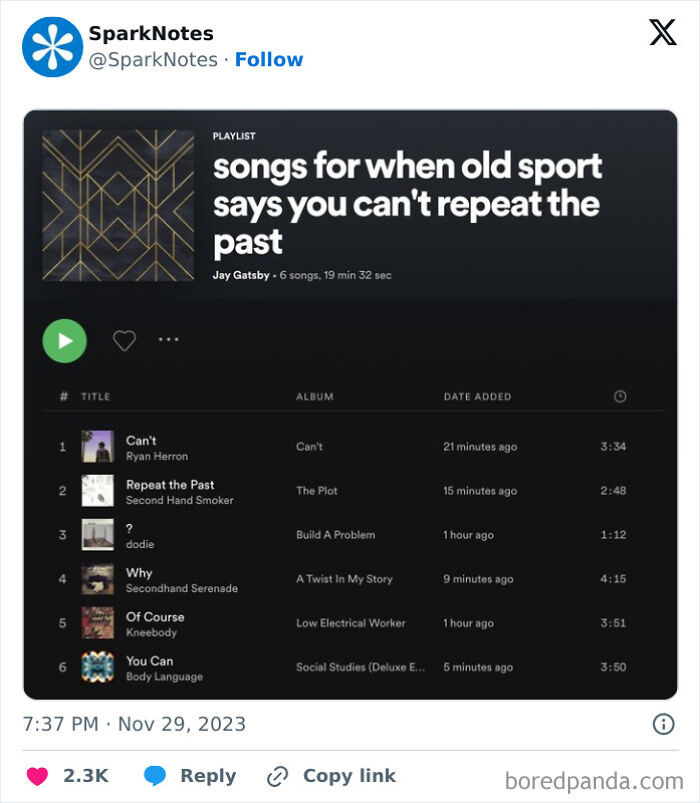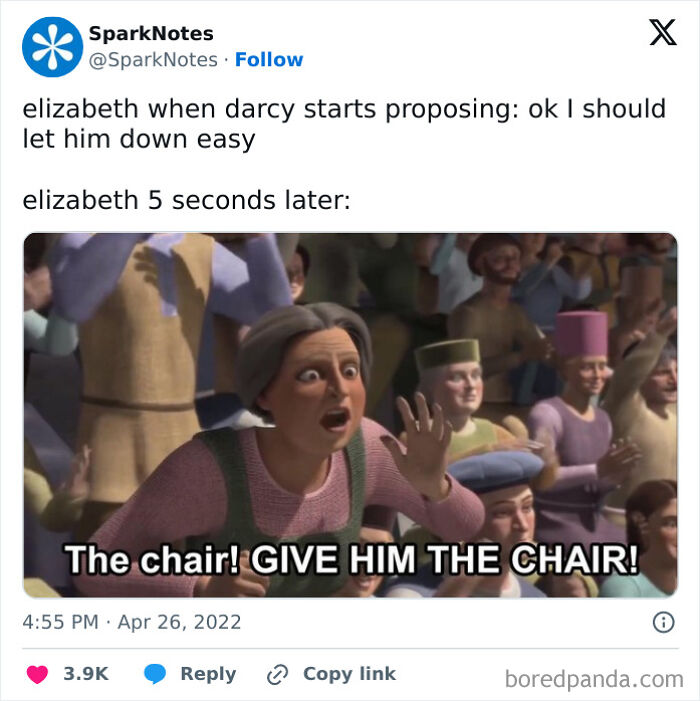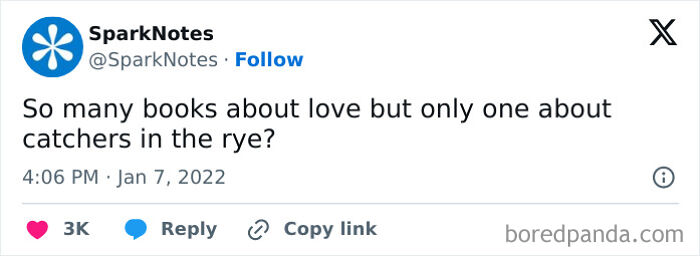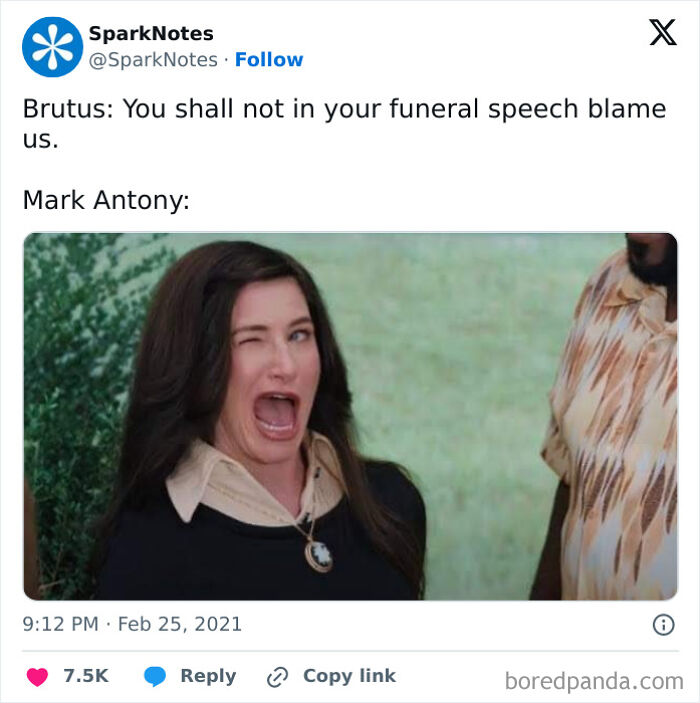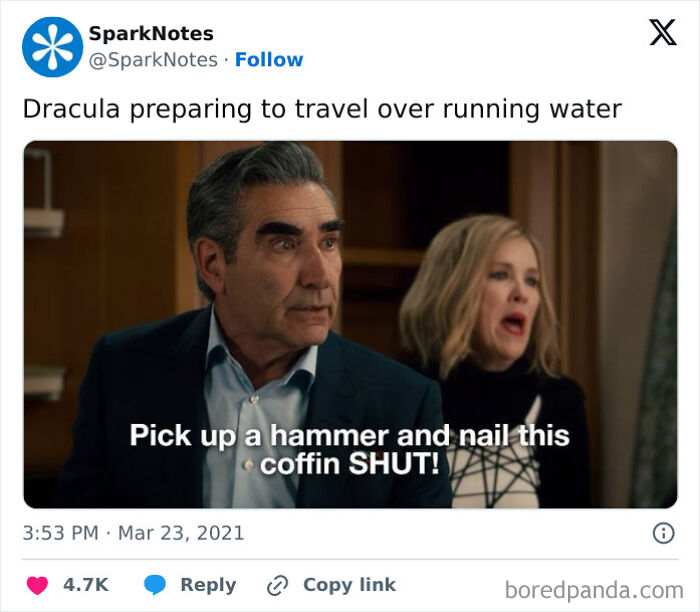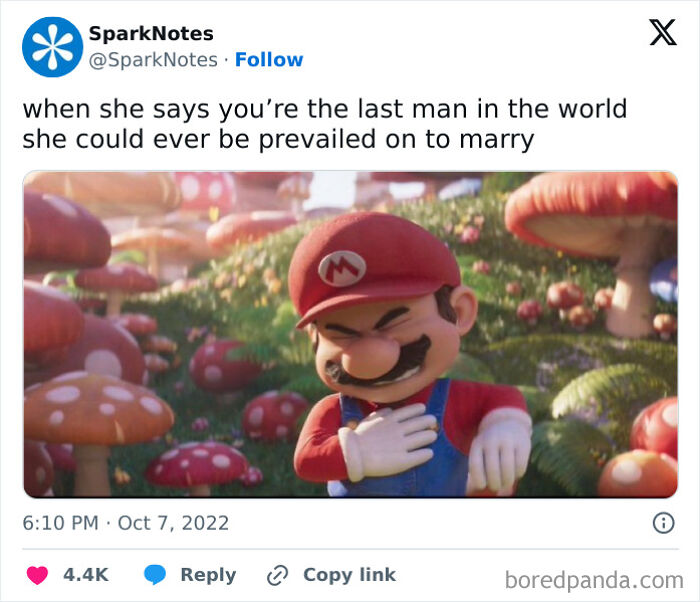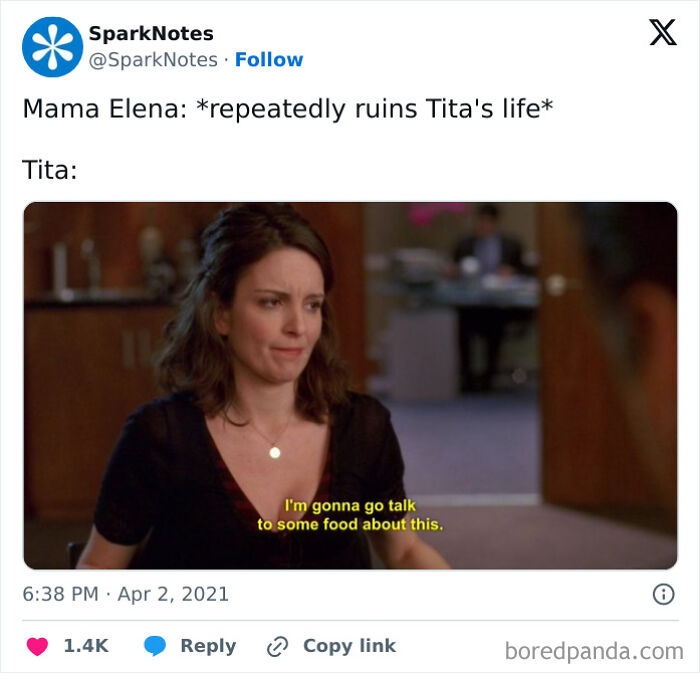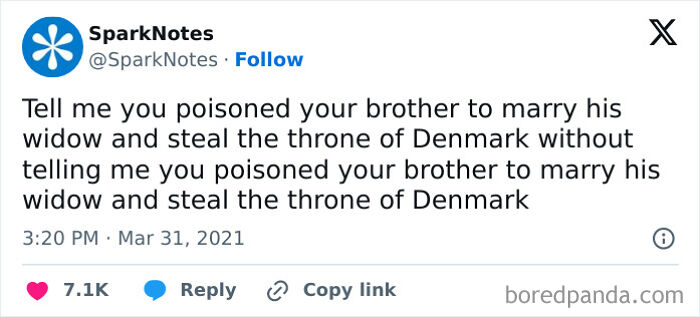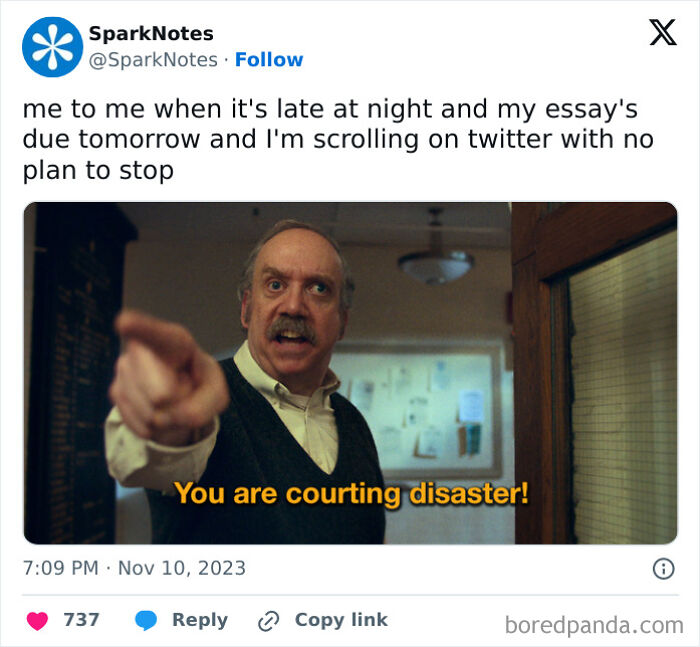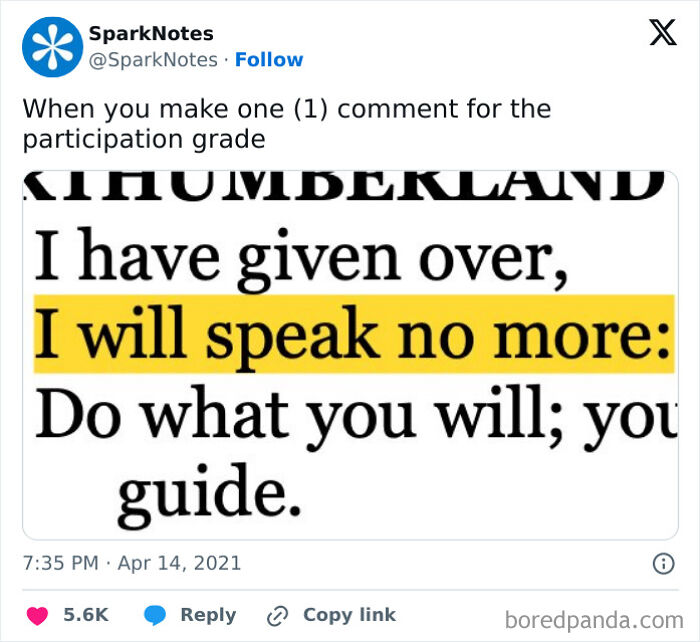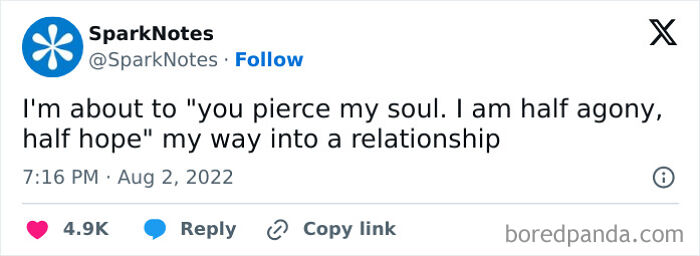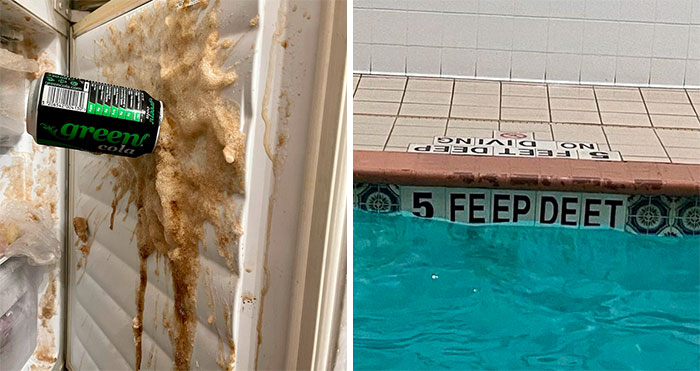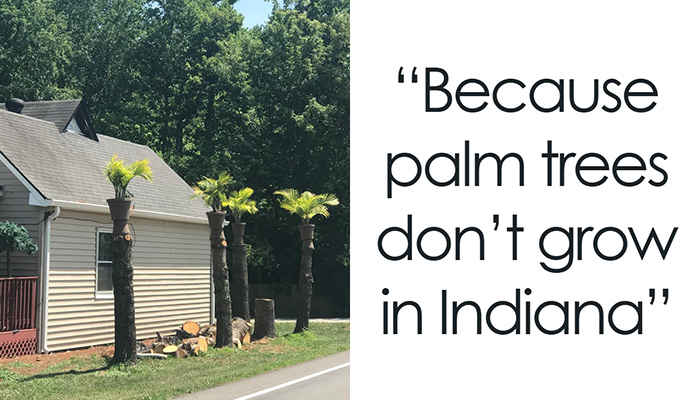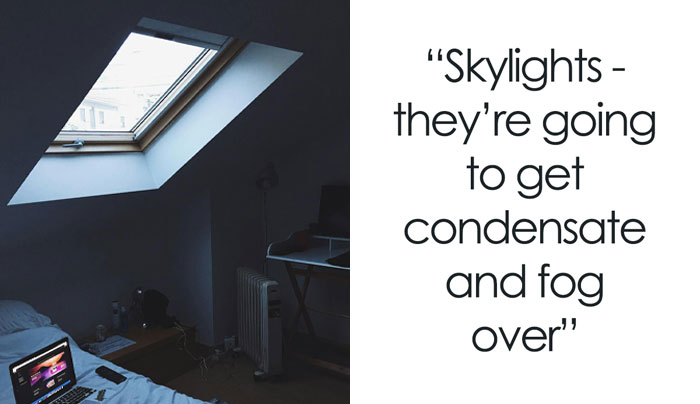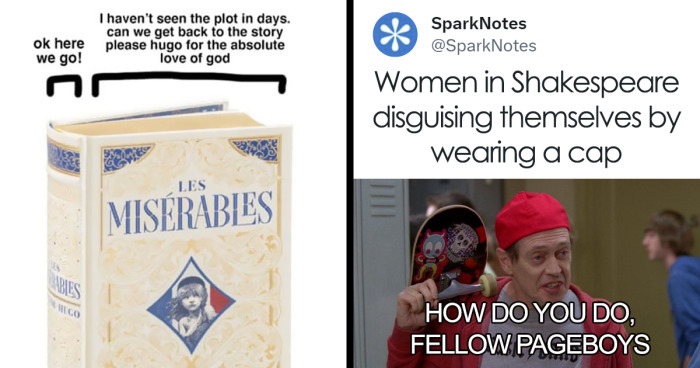
45 Funny And Witty Memes About Literature That Might Inspire You To Open A Book
Interview With ExpertMany of you probably know SparkNotes from back in your school or college days. You got confused by an assigned book, you were running late for class, or you were writing an essay right before the deadline (again!), and you needed to get to grips with the plot and main themes. SparkNotes is probably the most well-known literature resource in the world, summarizing countless books to help you study alongside the source material.
But something that you probably weren’t aware of is that SparkNotes is ridiculously good at the social media game. It has an account on X (formerly Twitter) that posts some great memes about literature. Our nerdy sides love them so much that we couldn’t help but share some of the best ones with you. Scroll down for a refresher about why literature is so awesome and why being geeky is cool!
Bored Panda got in touch with the member of the SparkNotes team running its X account, Courtney Gorter, and she was kind enough to tell us about literary memes and reigniting people’s passion for reading. Meanwhile, we also reached out to Lisa McLendon, Ph.D., from the University of Kansas, who is the William Allen White Professor of Journalism and Mass Communications, as well as the Coordinator at the Bremner Editing Center. She told us about truly great student essays. Read on for both of our interviews.
More info: Twitter | Instagram | Facebook | TikTok | SparkNotes.com
This post may include affiliate links.
Gorter, an Associate Content Strategy Manager at SparkNotes, explained to Bored Panda that the secret behind creating such great literary memes comes from reading a ton and spending a lot of time on X (aka Twitter).
We were curious to get her opinion on what quality literary memes have in common. “To me, a sign of a good literary meme is that people who have read the book think it’s spot-on, and people who haven’t read the book are curious enough that they decide to read it!” she said.
Some people feel like they don’t have enough spare time to read. Others, however, are dealing with extremely shortened attention spans, a huge problem these days. Gorter shared her thoughts about inspiring people to read more.
“For people who are looking to reignite their passion for literature, sometimes it’s all in how you think about it. Get rid of the idea that audiobooks don’t count; give yourself permission to stop reading a book you’re not enjoying; read several books at once if you get bored easily,” the SparkNotes team member told Bored Panda.
“I know so many people who got back into reading after a long dry spell, and the reason they came back is always different—maybe they discovered ebooks or audiobooks and it changed everything, or maybe they watched a TV or film adaptation, and wanted to read the series, or maybe (just maybe!) they saw a literary meme on Twitter that piqued their interest.”
Maine always reminds me of Jessica Fletcher/ Angela Lansbury (Murder, She Wrote).
According to Gorter, the best approach here is to meet people “where they are,” instead of forcing them or moralizing them.
“Some people are never going to be big readers, either because they don’t have time or it simply doesn’t interest them, and I think that’s okay! The great thing about literature is that it’s such a vast world, and there’s no right or wrong way to engage with it.”
Meanwhile, Professor McLendon, from the University of Kansas, echoed very similar thoughts on helping people (re)discover the love of reading.
“I’d love to see people reading more books: novels, nonfiction, whatever. I think one thing that could help, and this is something I’m encouraging my students to do over the winter break, is just read something YOU want to read for the fun of it,” she shared her thoughts with Bored Panda.
“By college, it seems that students tend to associate reading with homework, not pleasure, and if they can re-capture the feeling of reading for pleasure, then they may read more. Going along with that, people need to know it’s OK, when they’re reading for pleasure, to quit a book that they’re not into. There are so many great books in the world; don’t waste time on one you’re not enjoying!”
We also asked the professor for her thoughts on truly great student essays and how they can wow academic staff.
“Truly great student essays don’t just follow the directions (though they do that); they sparkle in both content and writing. That is, great essays approach the topic from an inventive or creative perspective and support the main idea with clear, specific information and examples,” McLendon said.
my mom just doesn't understand my job, its all "murder is bad" and "AHHHHHHHHH" like omg mom just stop.
“Great essays are written in concise, direct prose with a mix of sentence types and lengths to keep readers engaged, and they transition clearly from one point to the next. To achieve greatness, students need to think, then plan, then write, then revise,” she shared.
“It’s a process that most people can’t successfully complete the night before an assignment is due, and if a writer skimps on the ‘think’ stage—by, for example, using SparkNotes instead of reading the original and thinking through it—chances are the essay won’t be great,” the professor added that reading just a summary, in isolation, isn’t enough.
Once saw someone saying Victor Hugo knows a lot of words, but « concise » is not one of them
Huh? The existence of Macbeth implies the existence of Macaleph, Macgimel. Oh, you mean Little Women.
SparkNotes was initially launched way back in 1999 and has, over the years, become a household name. Meanwhile, the project launched its account on X (when it was still called Twitter, which most of us probably prefer) in April 2008.
The project has an extensive presence on social media. At the time of writing, SparkNotes had nearly 352k followers on X and 295k fans on Facebook. It also has 310k literature-hungry folks following it on Instagram and nearly 77k fans over on TikTok. All the more ways to spread funny and geeky literary memes!
Full disclosure: literature may have been (read: definitely was) our favorite class of all time, so these memes are right up our alley.
At least they decided to actually siege Troy instead of having a meeting. It would have been much longer.
Whatever you might have used SparkNotes summaries for in the past, the company itself points out that it stands firmly against cheating and plagiarism. While there’s nothing new under the sun, it’s important to be open about where you got your ideas from. Citing sources and crediting ideas—these are fundamental values whether you’re in a literature class or doing a degree in journalism.
“We're here to help you learn, not to help you cheat. Our literature guides are meant to be read along with the books they analyze. They are not intended to be copied on tests or papers (aka plagiarized),” SparkNotes explains its stance on people copying their summaries directly on the project’s website.
SparkNotes points out that you can avoid plagiarizing them by citing the words and ideas that came from their site or books. You can also rephrase these ideas in your own words, interpreting things from your own perspective.
As someone who's just had to deeply analyze this poem I'm a bit annoyed I could have just used this.
At this point in my life I fully believe that mysterious locked doors should be left well alone.
Transparency, clarity, and honesty are worth more than their weight in gold when it comes to literature, journalism, historical analyses, and writing (endless) essays.
The point is to use what SparkNotes offers as a supplement, not an alternative to reading the source material itself. We all need a little help understanding exactly what’s going on in a book sometimes when we’re “confuzzled.”
There’s no shame in asking someone for advice… or doing lots of Googling to check if we’re not alone in being lost.
SparkNotes offers over 500 guides for English literature and Shakespeare, as well as many other guides for other subjects, including history, math, and biology.
They also have a whole bunch of quizzes to help you learn the info that you need way better before that big test. They have a vested interest in helping everyone learn in a more efficient way.
Memes are, essentially, ideas, attitudes, jokes, and images that we share with other people. So the more something is shared, the more successful it is at being a meme, by definition.
In our experience, there are a few main things that elevate a meme from something ‘meh’ to a viral sensation. It all comes down to relatability, humor, format, and consistency.
Something that the SparkNotes team members in charge of creating and sharing all of these memes do so well is that they know their audience. It’s people who enjoy literature, reading, and books in general.
Naturally, they then focus on crafting memes that suit this particular audience. They make it relatable for lit geeks. But someone who’s not into literature may feel a lot of the references going over their head. But that's all right. Aside from dad jokes, there are very few categories of comedy that try to appeal to absolutely everyone.
Another aspect that the SparkNotes X account nails completely is adding copious amounts of humor to their posts. Memes do not have to be funny to be relatable or to go viral… but comedy certainly helps. When an image makes you feel good, you want to share it with the people you care about to make them feel the same way that you do.
In terms of format, you want your meme to be easy to read. We’re all overloaded with pics, memes, posts, and news stories on social media, so images only have a mere moment to grab our attention. If there’s way too much text or the font’s hard to understand, internet users might just decide to skip reading the thing altogether.
Meanwhile, if you plan on entertaining your followers with memes, it’s a good idea to be consistent with your posting. It doesn’t mean that you have to spam your feed with dozens of memes each day, though. But it means carving out a reputation as someone who’s consistent and trustworthy in their posting schedule.
We would love to learn a bit about your literary habits, Pandas, so scroll down to the comment section and share your thoughts. How much time do you find to read every week? What did you enjoy the most about lit classes back in school and college? Have you ever used SparkNotes before? Which gothic horror books are your faves?! Let us know!
My friend said about Frankenstein: "he was bored in college so he made a guy"
The only problem is figuring out which one is Rosencrantz and which one is Guildenstern.
PS. My former girlfriends always objected to "parting is such sweet sorrow".
One of the best articles on bp ever! Loved the Dorian Gray related ones
One of the best articles on bp ever! Loved the Dorian Gray related ones

 Dark Mode
Dark Mode 

 No fees, cancel anytime
No fees, cancel anytime 






